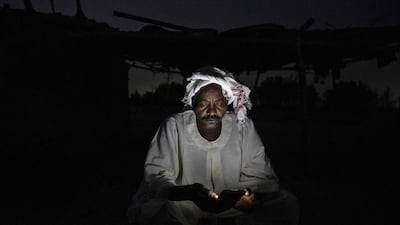Sudan could qualify for a World Bank and International Monetary Fund initiative to write off most of its foreign debt, which currently stands at $49.8 billion.
The move is expected to unlock additional resources to drive economic recovery and combat poverty.
The IMF and World Bank executive boards agreed that Sudan is eligible for the Heavily Indebted Poor Countries initiative.
However, the assistance will be contingent on a preliminary assessment, the fund said on Saturday.
“It provides a clear acknowledgement of Sudan’s sustained implementation of key economic and financial reforms under its staff-monitored programme with the IMF,” said IMF managing director Kristalina Georgieva.
“Helping Sudan achieve debt relief and unlock access to the needed resources to increase growth and reduce poverty is a key priority for the IMF.”
The HIPC initiative was launched in 1996 by the two Washington lenders to assist poor countries saddled with unsustainable debt burdens that could curtail economic growth and efforts to reduce poverty.
To date, 36 countries have benefitted from the initiative.
The US removed Sudan from its list of state sponsors of terrorism in December after about three decades.
This brightened the country’s prospects of receiving much-needed external financing. In December, the US said it would give the World Bank a $1.15bn bridge loan to help clear the country’s arrears with the institution.
Sudan faces several economic challenges nearly two years after dictator Omar Al Bashir was removed from power, with Covid-19 compounding its economic woes.
The economy, which contracted by about 8.4 per cent last year, is expected to shrink by another 2.3 per cent this year, according to the IMF.
The debt-to-gross domestic product ratio exceeded 259 per cent last year while inflation rose from 269 per cent in December to 304 per cent in January, according to the state statistics bureau.
In February, the country’s central bank devalued the currency to “unify” official and black-market exchange rates, a key debt relief condition set by the IMF and foreign donors.
“This is a breakthrough at a time when Sudan needs the world’s help to support its development progress,” said World Bank president David Malpass.
“The steps taken so far, including arrears clearance and exchange-rate unification, will put Sudan on the path to substantial debt relief, economic revival and inclusive development.”
Prime Minister Abdalla Hamdok, a veteran UN economist who has been at the helm since 2019, said this was strong recognition of Sudan’s “remarkable progress on economic reforms that pave the way to sustainable poverty reduction and economic growth”.
To qualify for debt relief, Sudan established a six-month track record of satisfactory performance under the current IMF staff-monitored programme that began in September.
It also removed large fuel subsidies and broadened the tax base in September.
The fund urged authorities to clear their arrears with multilateral creditors or agree on a strategy to do so. They should also agree on the reforms that Sudan will need to enact.
Prompt action on these measures could result in the North African country being granted debt relief by the end of June.
Sudan will qualify for irrevocable debt relief under the HIPC Initiative and for debt relief under the Multilateral Debt Relief Initiative by the World Bank’s International Development Association and the African Development Fund.
Paris Club creditors are also expected to provide further assistance, the IMF said.


